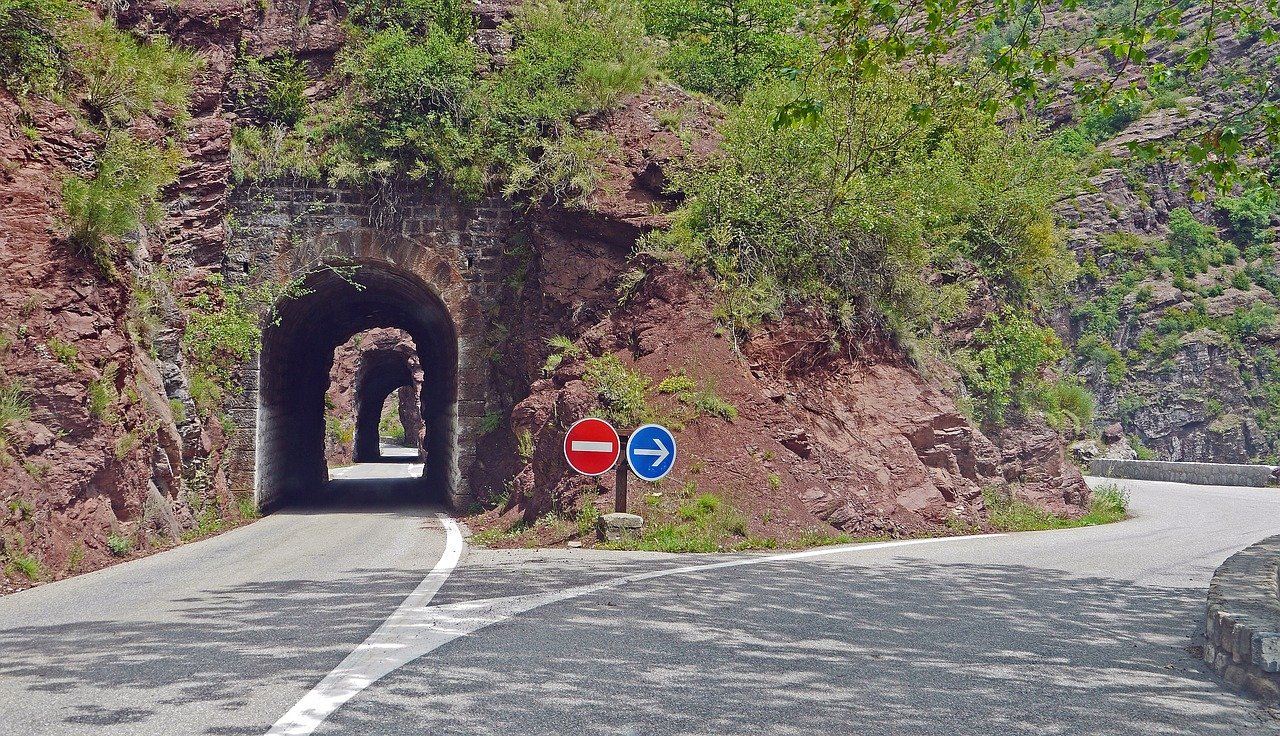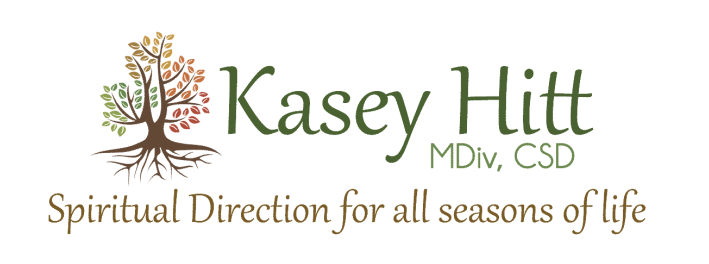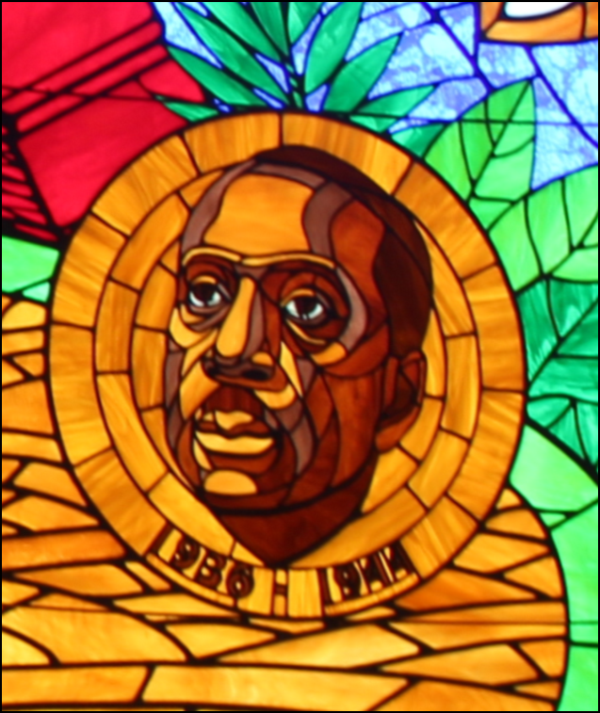|
During these turbulent times we must remind ourselves repeatedly that life goes on.
This we are apt to forget. The wisdom of life transcends our wisdoms; the purpose of life outlasts our purposes; the process of life cushions our processes. The mass attack of disillusion and despair, distilled out of the collapse of hope, has so invaded our thoughts that what we know to be true and valid seems unreal and ephemeral. There seems to be little energy left for aught but futility. This is the great deception. By it whole peoples have gone down to oblivion without the will to affirm the great and permanent strength of the clean and the commonplace. Let us not be deceived. It is just as important as ever to attend to the little graces by which the dignity of our lives is maintained and sustained. Birds still sing; the stars continue to cast their gentle gleam over the desolation of the battlefields, and the heart is still inspired by the kind word and the gracious deed. There is no need to fear evil. There is every need to understand what it does, how it operates in the world, what it draws upon to sustain itself. We must not shrink from the knowledge of the evilness of evil. Over and over we must know that the real target of evil is not destruction of the body, the reduction to rubble of cities; the real target of evil is to corrupt the spirit of man and to give his soul the contagion of inner disintegration. When this happens, there is nothing left, the very citadel of man is captured and laid waste. Therefore the evil in the world around us must not be allowed to move from without to within. This would be to be overcome by evil. To drink in the beauty that is within reach, to clothe one’s life with simple deeds of kindness, to keep alive a sensitiveness to the movement of the spirit of God in the quietness of the human heart and in the workings of the human mind-- this is as always the ultimate answer to the great deception. Excerpted from Meditations of the Heart by Howard Thurman, published by Beacon Press, 1953. _____________________________________________ The words of this spiritual mentor of Martin Luther King, Jr., can still offer us wisdom during times of rising anger and increasing hopelessness. We often reflect on the writing of Howard Thurman in Wisdom Tree Collective’s School of Spiritual Direction. He was a civil rights leader, a theologian, author, academic, and pastor who was a mystic at heart, finding solace in nature—a favorite oak tree was a spiritual friend, a nonhuman elder & mentor. Thurman also co-founded the Church for the Fellowship of All Peoples in San Francisco, the first racially integrated, intercultural church in the United States, which also valued the creative arts as a way of sharing the Good News. He was familiar with suffering. Let his words speak to your soul today. Read more of his wisdom in his book Meditations of the Heart.  Spiritual practices, like meditation and even church-going, can become spiritual bypass—ways of bypassing reality both outside and inside of us, dissociating from wounds within and without, ignoring the healing work that needs to be done in our inner and outer world. But spiritual practices can also be vehicles for transformation of both ourselves and our world. How?—by giving us new ways of seeing and being (which is the whole point of authentic spiritual practice). Let’s take a look at a few practices... Conscious Breathing: With as little as 10 slow, complete exhales and 10 full, relaxed inhales, we can calm the fight, flight, freeze survival impulse, allowing us to move from a reactive, closed off, defensive place to a receptive, open, deeper place. Centering Prayer: Through daily practice of 20 minutes of silent surrendering to God’s presence & action, we let go of our ego-drivenness and receive inner healing of compulsions and soul wounds. Not only does this bring personal freedom but it releases us from projecting our compulsions and wounds on others and passing them down to our children. Lectio Divina: Spiritual reading allows a word or phrase in a small portion of inspired text, whether sacred Scriptures like the Psalms or a poem, to speak to us. Rather than bringing what we already know or studying it, we allow the text to study us! As we bring our story, our lives, to it, we humbly listen for the wisdom and guidance being offered (which may be encouragement to see a counselor or write a letter to your senator!). Awareness Examen: Looking over our lives at the end of the day through the eyes of God helps us become aware of God’s life-giving presence and action (and the times throughout the day when we were unaware or resistant). The patterns of what is life-giving and life-draining help us discern who we are and what we are to offer this world. Silent Retreats: Extended time in silence and solitude creates space for our souls to rest and play which opens us to better hear the “still, small voice” which may be drowned out by the external noise of daily life or the internal noise of comparing ourselves to others. There are so many practices I could list here but the point isn’t the practice itself, it’s the “fruit.” Seated meditation may not fit you. You may desire some kind of moving meditation, like dance or qigong. Or you may prefer to spend time in nature or doing art. What practices have you found that cultivate love in you? What helps you have eyes to see and tend to the suffering both inside yourself and in others? Which ways of wisdom help you discern what is yours to offer this world (not out of compulsion but compassion)? A Spiritual Director can companion you on this journey of discovery of spiritual practices. But remember, it’s not necessarily the practices, it’s the humans who are transformed by these practices, that this world needs. What do spiritual practices like Centering Prayer offer a hurting world?—YOU! I told a friend the other day that as more political signs go up around me, the angrier I become. Most assuredly I wouldn’t be as angry if they aligned with my own ideology…how telling! My reaction reminds me of the immense draw to live on the level of agreement. Do I agree or disagree? If the latter, criticism comes quickly followed by detaching from the author, politician, doctor, Facebook friend, family member, neighbor…write them off…case closed, act as if everything is fine. But this kind of dissociation never works for me in the long run. It's not case closed. Pretending, ignoring, and stuffing feelings ultimately turns into back pain and headaches which is not loving myself (which then leads to the inability to truly love my neighbor). See last week's post for more on loving oneself. The growing rift, polarization, and lack of neighborliness leads me to ask, “Who is my neighbor?” I can’t help but think of Jesus’ parable of an enemy coming to one’s rescue in a time of need (see The Good Samaritan). Or his words in the famous Sermon on the Mount, “You have heard that it was said, ‘Love your neighbor and hate your enemy.’ But I tell you, love your enemies and pray for those who persecute you…" Matthew 5: 43-44 Ugh. How do you actually do this? Realizing that we see our own reflection in the faces of others—both the shadow and the light—can add to the pressure. The shadow within is hard enough to face, it can be twice as hard when I see it in the face of others (if I’m even willing to admit I do)! Who wants to admit that the narcissism detested in someone else can be a mirror reflecting the narcissism residing within one's self? Note: This doesn’t excuse or downplay the narcissistic actions by the other. When Jesus boldly expanded on his Jewish lineage saying that not only are our neighbors those who belong to our family/group and those on the margins of our family/group, but so are our enemies, it must have stunned his audience. Even though it was consistent with his teachings about the Kingdom of God and his prayer that life on earth reflect life in heaven, we sadistically like the idea of some people not being included. But the love of God includes everyone. Jesus reminds his listeners, right after telling them to love their enemies, that God sends rain for those who do right and those who do wrong. And like the moon reflects the sun, we're to reflect God. So how do we integrate the shadow and light of others, especially that of our enemies? And why should we even try? When it comes to why, enemy-hating takes up a lot of space in our inner world. It crowds out what is life-giving. Jesus knew the fruit that hate bears. It depletes our inner energy and resources, crippling our ability to live a life of Love within and without. “Hatred destroys finally the core of the life of the hater…hatred tends to dry up the springs of creative thought in the life of the hater, so that his resourcefulness becomes completely focused on the negative aspects of his environment.” Whoever we hate holds power over us. When we release the hate, we release their power over us, and free up that energy to love. Hatred, like love, may start out small (one act or one person), but it quickly overflows into everything and everyone.
So again, what are we to do? How can we begin to release criticism, anger, and hate? Since curiosity is helping me release the anger and criticism toward myself, I’ve been experimenting with curiosity in the shift toward loving my neighbor/enemy. What might happen if I chose curiosity over criticism with my "neighbor"? Another political sign went up, this time with a flag on the porch of someone I’ve never met. Going past their residence, I looked at the signage and their house with curiosity:
After a few wonderings & questions (without providing hypothetical answers!), I found my face softening and a willingness to actually have a real conversation rather than a hardening and hiding in my anger. Honestly, I was surprised. I experimented with a friend when the conversation turned to politics and we wanted to criticize a group of people. When we shifted to curiosity, the critique faded. Surprise again! The most recent opportunity happened when someone disagreed with my schooling choice for my kids. I asked some questions instead of focusing on defending myself. They began asking questions. We left the conversation still having differing opinions, but smiling and looking forward to future conversations. Curiosity may be the spiritual practice for this season. May it be a step on the path of peace, a way of wisdom, a beginning in embodying the love of God, especially toward all of those putting up political signs! What happens when we discount small actions or fear the possibility of humiliation?
We may not act at all. When we embrace both, we’re free to act. Any life-giving act, no matter how small, matters. According to Jesus, the Kingdom of God is like a mustard seed someone planted or like yeast a woman worked through a large amount of dough. Both the mustard seed and yeast required action from someone to bring about their potential. Both seed & yeast, the required action, and even the people may seem small and even hidden. Both may be small and hidden, but some actions require more (planting a seed is easier than kneading yeast through 60 lbs of dough!) Both contain big potential to benefit an entire community, offering nourishment in a variety of ways:
All of this from two small actions! If we're going to be sowers of seed and kneaders of the Bread of Life, know this... Action is never humiliation-proof. According to Fr. Richard Rohr, we're to pray for one good humiliation a day! What a way to stay humble and inevitably learn that humiliation is often a gateway to transformation! I promise you, especially if you, like me, are White (& an Enneagram One), it will happen as you enter into the on-going work of antiracism. Last fall, my daughter and I went to a weekend seminar to hear Nobel peace prize nominee, Fr. John Dear, talk about “Jesus as Peacemaker.” It’s been a constant part of our conversations ever since, becoming richer with insights from others. Earlier this year, Abby Buter pointed out the difference between being a “Peacekeeper” and a “Peacemaker” during the “Meditating with the Aramaic Beatitudes” class. The distinction is important…Jesus was the latter & said it’s the latter who are blessed. Fr. Dear gave my daughter a new language of nonviolence and she’s been quick to point out when I’m not (& other Christians aren’t) following in the footsteps of the nonviolent Jesus…oh the blessings of having a teenager in the house! But she’s right. And having it pointed out can be humiliating. When my children saw the video and photos of George Floyd, they were distraught. The conversation around Jesus and nonviolence needed to be taken to the next level. I decided to begin with my own faults and humiliations so they would learn not to fear their own. Around the dinner table, I told them stories from my own life of how I have thought, said, or did things that contributed to racism and upheld racist beliefs and systems. We talked about the reality of having inherited racist ideas as a culture and how Western Christianity’s own “superiority complex” has added to the problem by often making us overtly or covertly feel like we are definitely on the “winning team” and others are not. I told them of when I was a youth pastor and met with a community organizer after having spent time in Mississippi with Dr. John Perkins who encouraged me to do the same kind of community and racial reconciliation work with our students in our Missouri town rather than go elsewhere. Conversations with a couple of Black pastors in the area led me to talk to the Black community organizer. After telling him what I wanted to do, he laughed, and I felt humiliated. He pointed out how it was fine that I wanted to bring my students from the north side to the south side to help paint or whatever, BUT, it still didn’t change the fact that what the predominately Black kids on the south side were using as a community center was an old building that no one else wanted (but the kids were still happy to have) while the predominately White kids on the north side enjoyed a brand new top-of-the-line sports complex. It was an eye-opening conversation. Noticing my humiliation and naivete, he said, “I like you” then continued to challenge my White privilege. Doing “good work” and being a “good person” weren’t enough. At the end of our time, he still put me in touch with those who could help me line up service projects and then he sent me on my way (which included crossing a threshold I had no idea I would be crossing when I first walked in there). It was later that I could see how he was trying to open my eyes to the larger systemic problem of racial inequality and the problem of “White Savior Complex”--- our White Christian youth group would feel good about “helping” but the larger problems would still exist after we left (& in some cases our help would further uphold the problematic systems). Looking back, I’m grateful for the humiliation! Why?
Last month the opportunity to join an online discussion group facilitated by a Black friend from high school on the book, How to Be An Antiracist, came up. Aside: I've enjoyed listening to author, Ibram X. Kendi, read the audio version; often my kids listen, too. I knew a good humiliation (or more!) would come as I listened, shared, and became even more deeply aware of my ignorance both in high school and now (i.e. How did I not or how have I continued to not see, know, or consider this before?). However, experience tells me that humiliation need not stand in the way (and often is the way!). Do the conversations with family, friends, and neighbors matter? Does the discussion group matter? Refer to Jesus’ parables on the mustard seed and yeast. ______________ Two resources for ongoing learning, awareness & action:
|
AuthorKasey is a scarf, ball and club juggling spiritual director just outside of Nashville, TN. Play helps her Type-A, Enneagram 1 personality relax, creating space for poetry and other words to emerge. She also likes playing with theological ideas like perichoresis, and all the ways we're invited into this Triune dance. Archives
January 2024
Categories
All
|
By clicking “Sign up for E-News” I consent to the collection and secure storage of this data as described in the Privacy Policy. The information provided on this form will be used to provide me with updates and marketing. I understand that I may modify or delete my data at any time.


 RSS Feed
RSS Feed

